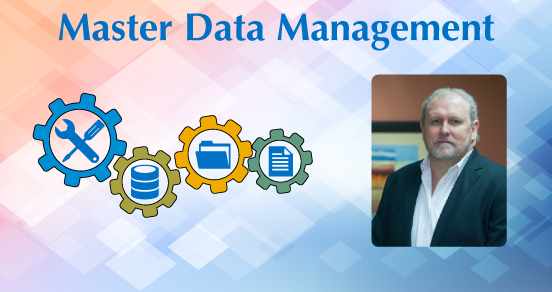For many years Master Data Managment has been one of the unnecessary burdens for enterprises, because ecently that enterprises have started to realise the actual value and importancent erprise resource planning (ERP) and other systems required this in order to perform certain transactions. It is only re of master data: it is rapidly growing in the market and is a vital component of operations, audits, governance, analytics, decision making and ERP systems.
What is Master Data Management?
Master Data Management (MDM) is a method of linking all the important business data of an organization into a single master file. This method is usually implemented to streamline data sharing within an organization when multiple shareholders need access. This master file provides critical information to a shared single point.
Get a complete, comprehensive overview of your customer data, supplier data, product data and other company data. In addition, we have developed the Master Data Record Manager (MDRM) system to ensure that your data is sorted by compiling relevant information about your product range.
Why Master Data Management?
In today's highly demanding economy, with the need to adapt quickly to trends, economic pressures and the ever-increasing legislation requirements, enterprises are realising that data, specifically master data, is important. Master data is no longer an unnecessary burden but an asset that must be properly asset managed. In some industries it is now referred to as the new gold or currency, or even the new oil.

Data does not only reflect the enterprise's history. More importantly, it provides the business intelligence for management to make the right decisions. The integration and link between all the different master-data domains, like materials, services, vendors, customers, human resources, assets, etc., holds the key to unlocking business intelligence as the foundation for good business decisions.
Master data is the data that identifies and describes individuals, organisations, locations, assets, goods, services, processes, rules and regulations.In an ERP or enterprise asset management (EAM) system, master data is typically found in domains like vendor master, material master, asset master and service master, but also in the customer and employee masters
Improved master-data quality provides significant short- and long-term benefits. Ordering processes and a reduction in off-contract spend with an improved accuracy of spend analysis. The identification and resolution of duplicates in master data improves operational efficiency, lowers operational and expansion costs, and improves the accuracy of financial reports. The reliability of master data is critical in maintaining efficient operations, in the accuracy of financial planning and reporting as well as in managing risk and to provide the necessary transparency to management of all activities and transactions taking place in the enterprise. Due to the fact that master-data management is only now getting the necessary attention, many enterprises do not really know how to tackle it. Below are some practical steps that can be followed:
Without proper governance, though, master-data management is like driving a car without a steering wheel. To make the most of this data, organisations need to setup governance guidelines that lead to policies, standards, business rules and processes, based on a proper methodology. The quality of information as well as the knowledge and wisdom needed by top management to make good business decisions is dependent on the quality of the data, and this can only be accomplished with good governance.
Remember, clean data saves money.
Pieter Strydom is the CEO of PiLog Africa, a leading provider of master data quality solutions, services and content, supporting multiple domains in various industries.
Here is the link to the bespoke article of Pieter:
http://www.bespoke.co.za/index.php